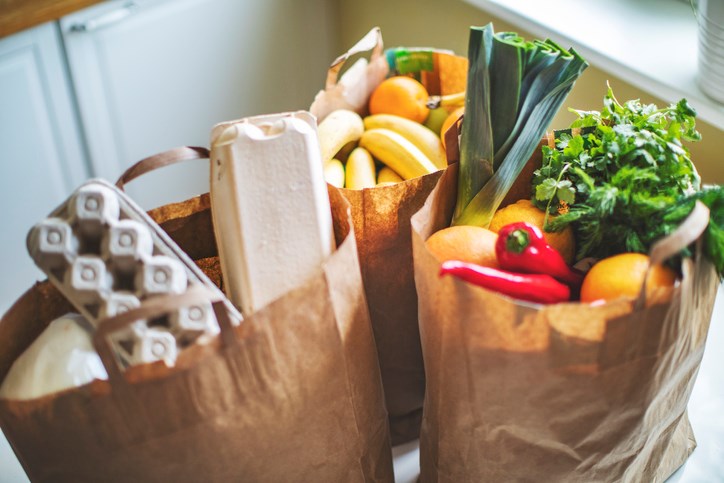As we approach 2024, Canadians are confronted with a landscape profoundly altered by the surge in food prices. The most recent survey, conducted by the Agri-Food Analytics Lab at Dalhousie University in partnership with Caddle, provides valuable insights into these shifts.
It reveals the resilience and adaptability of Canadian consumers while also shedding light on the underlying economic pressures that could reshape the food industry. These findings suggest that 2024 will bring about noticeable changes at the grocery store.
Canada’s , released a few weeks ago, predicts a more moderate increase in food prices, with the average family expected to allocate up to $700 more for groceries in 2024. This projection represents over 30 percent less than last year’s forecast. As a follow-up, this new survey captures the perspectives of 5,000 Canadians, offering us a glimpse into their expectations for the coming year concerning food in general.
A staggering 80.3 percent of Canadians anticipate further price hikes in the upcoming year, which is hardly surprising. This expectation is driving significant shifts in shopping habits, with 43.3 percent of respondents planning to focus more on promotions, 34.6 percent on using coupons, and 33.6 percent on loyalty programs. Additionally, 30.6 percent are contemplating switching stores to secure better deals in 2024.
These trends signify a heightened consumer sensitivity to prices, which will likely exert pressure on retailers and food producers to maintain competitive pricing structures. This is why Canada’s Food Price Report 2024 suggests that price wars might be a strategy to regain consumer loyalty – good news for consumers, something we all need.
The survey also uncovers a shift in product preferences. Only a small percentage of Canadians (14.9 percent) plan to purchase more organically grown products in 2024, and 12 percent intend to buy more fair-trade products. This highlights a nuanced balance between ethical consumption and financial constraints.
One of the most remarkable aspects of the survey is the emphasis on reducing food waste. The average Canadian household generates 140 kilograms of food waste annually, equivalent to more than $2,500 in wasted food, representing a significant expenditure. In response, 48 percent of Canadians intend to enhance their meal planning and shopping strategies in 2024, 36.2 percent plan to consume leftovers more frequently, and 32.7 percent aim to employ better preservation methods.
While things are projected to improve at the grocery store in 2024, restaurants are not expected to have it easy. The survey further reveals a decline in dining out, with 38.3 percent of Canadians planning to eat out less frequently in 2024 and 12.2 percent not at all. This could have substantial implications for the restaurant industry, potentially leading to reduced revenues and necessitating shifts in business models. However, this trend is not surprising considering the increasing costs of shelter and other essentials.
As a result, we anticipate a growth in ready-to-eat counters, with “dining in” becoming more popular in the coming months.
The survey also inquired about Canadians’ New Year’s resolutions for 2024. It’s always interesting to learn what Canadians intend to do in the new year, especially when it comes to food. Health appears to be the top priority for Canadians in 2024, with 14.9 percent planning to make healthier food choices. This is followed by cooking more at home (13.7 percent). Drinking more water and staying hydrated ranks as the third most popular resolution, followed by exercising more to complement a balanced diet.
The findings from the Dalhousie University survey reveal a broader economic narrative: Canadians are increasingly concerned about rising food prices, leading to a shift in their food consumption habits. From relying more on promotions and loyalty programs to placing a greater emphasis on reducing food waste, Canadians are adapting to manage their food expenses in various ways. This change goes beyond economics; it represents a cultural shift in how we approach our food choices and consumption patterns.
The survey paints a picture of a population proactively adjusting to economic realities. Canadians are becoming more savvy about food and food expenditures. The implications of these changes are far-reaching, affecting everything from household spending to industry practices and policy decisions.
As we enter 2024, it will be crucial for all stakeholders in the Canadian food economy to understand and respond to these evolving consumer trends.
Dr. Sylvain Charlebois is senior director of the agri-food analytics lab and a professor in food distribution and policy at Dalhousie University.
©




